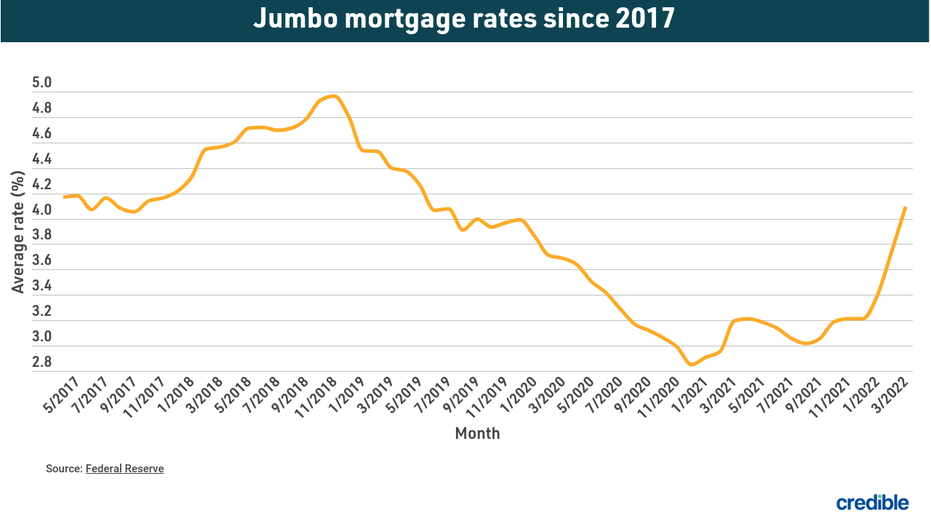Jumbo Loan: Exactly How to Qualify for Larger Home Funding
Jumbo Loan: Exactly How to Qualify for Larger Home Funding
Blog Article
Discovering the Advantages and Features of Jumbo Loans for Your Following Home Purchase Decision
As the real estate market evolves, understanding the details of big fundings ends up being increasingly pertinent for potential buyers taking into consideration high-value residential properties. These fundings not just help with substantial funding but also offer numerous advantages, such as affordable rate of interest and the potential removal of private home loan insurance policy. However, the path to securing a big lending is packed with details eligibility requirements that might challenge some customers. To completely appreciate how jumbo loans can affect your home acquisition approach, it is necessary to explore their key attributes and benefits in better detail.
What Is a Jumbo Car Loan?

Jumbo lendings are frequently used by customers seeking to purchase high-value homes or homes in pricey markets. jumbo loan. Given the larger quantities obtained, lending institutions usually enforce stricter credit report demands, including greater credit report, reduced debt-to-income ratios, and larger down payments. The rates of interest on big fundings may be somewhat greater than those on adjusting loans, reflecting the boosted risk for lending institutions
In addition, the authorization process for a jumbo financing can be extra complicated and time-consuming, as loan providers call for considerable documentation to evaluate the consumer's monetary security. Understanding these nuances is essential for prospective house owners taking into consideration a jumbo lending for their home financing needs.
Secret Benefits of Jumbo Finances
One substantial benefit of jumbo finances is their capacity to fund higher-priced residential or commercial properties that surpass adjusting funding limitations. This function makes them an appealing alternative for purchasers wanting to purchase deluxe homes or homes in high-cost areas where prices generally go beyond traditional loan limits.
Furthermore, big car loans commonly come with flexible terms and competitive rate of interest prices, permitting borrowers to tailor their financing to suit their unique monetary scenarios. jumbo loan. This adaptability can consist of options for adjustable-rate home mortgages (ARMs) or fixed-rate financings, providing customers with the ability to handle their month-to-month payments according to their preferences
One more benefit is that big car loans do not require personal mortgage insurance coverage (PMI), which can substantially reduce the total expense of the car loan. With PMI frequently being a significant cost for conventional fundings with reduced down settlements, avoiding it can bring about substantial cost savings in time.
Additionally, debtors of jumbo loans commonly have access to greater car loan quantities, enabling them to purchase residential or commercial properties that meet their lifestyle requires. This access empowers customers to act emphatically in affordable actual estate markets, protecting their preferred homes better. Generally, big car loans use essential benefits for those looking for to finance premium residential properties.
Eligibility Requirements for Jumbo Car Loans
Jumbo lendings feature specific qualification demands that prospective debtors must fulfill to secure funding for high-value buildings. Unlike traditional financings, which have actually established limitations based upon the conforming loan limitations established by government-sponsored entities, big car loans go beyond these thresholds, necessitating more stringent requirements.

Moreover, big finances usually necessitate a substantial deposit, usually ranging from 10% to 20% of the purchase price, depending upon the lender's plans and the customer's economic circumstance. Cash reserves are likewise thought about, with lots of lenders expecting customers to have a number of months' worth of home mortgage settlements conveniently offered. Thorough documents of revenue and possessions will certainly be needed to support the financing application. Satisfying these eligibility needs can place debtors favorably in safeguarding a jumbo finance for their preferred building.
Contrasting Jumbo Fundings to Traditional Lendings
Understanding the differences in between conventional lendings and big loans is crucial for homebuyers browsing the premium realty market. Jumbo finances surpass the adjusting finance limits set by the Federal Real Estate Money Firm (FHFA), which indicates they are not qualified for purchase by Fannie Mae or Freddie Mac. This leads to different underwriting standards and needs for consumers.
On the other hand, conventional car loans typically abide by these limits, enabling a much more structured authorization process. Jumbo finances frequently require more stringent credit history, larger deposits, and greater financial books. For circumstances, while a conventional car loan may need a down settlement of as little as 3% to additional reading 5%, jumbo car loans generally require a minimum of 10% to 20%.
Rates of interest on big lendings may differ from those of standard fundings, often being somewhat higher as a result of the raised threat lending institutions assume - jumbo loan. Nonetheless, the possibility for substantial funding can be advantageous for purchasers looking for luxury residential or commercial properties. Ultimately, recognizing these differences allows homebuyers to make enlightened decisions, straightening their funding alternatives with their one-of-a-kind purchasing requirements and monetary situations
Tips for Safeguarding a Jumbo Finance
Protecting a jumbo finance calls for mindful planning and prep work, as lending institutions commonly enforce stricter needs contrasted to traditional lendings. To enhance your chances of approval, start by checking your credit rating and addressing any issues. A rating of 700 or higher is generally chosen, as it shows credit reliability.
Following, gather your financial documents, consisting of income tax return, W-2s, and financial institution declarations. Lenders generally require thorough proof of revenue and properties to analyze your ability to repay the financing. Preserving a reduced debt-to-income (DTI) proportion is additionally important; aim for a DTI listed below 43% to improve your application's competition.
In addition, think about making a larger down settlement. Many lending institutions look for at the very least 20% down for jumbo financings, which not just reduces your finance amount yet also signals economic security. Involving with a knowledgeable home loan broker can offer vital understandings right into the process and aid you navigate various lending institution alternatives.

Final Thought
In recap, big loans present significant advantages for buyers seeking buildings that exceed traditional funding limitations. Comprehensive understanding of both the advantages and needs associated with big car loans is essential for making informed check it out home purchase decisions in an affordable real estate market.
The rate of interest prices on big car loans might be slightly greater than those on adhering loans, mirroring the raised risk for lending institutions.
While a traditional lending might call for a down settlement of as little as 3% to 5%, big lendings usually require a minimum of 10% to 20%.
Interest prices on big loans may vary from those of standard loans, often being slightly greater due to the boosted risk lending institutions think.Securing a jumbo loan needs cautious planning and preparation, her response as lending institutions frequently impose stricter demands contrasted to standard finances. Lots of loan providers seek at the very least 20% down for jumbo loans, which not just minimizes your car loan quantity however additionally signals financial stability.
Report this page